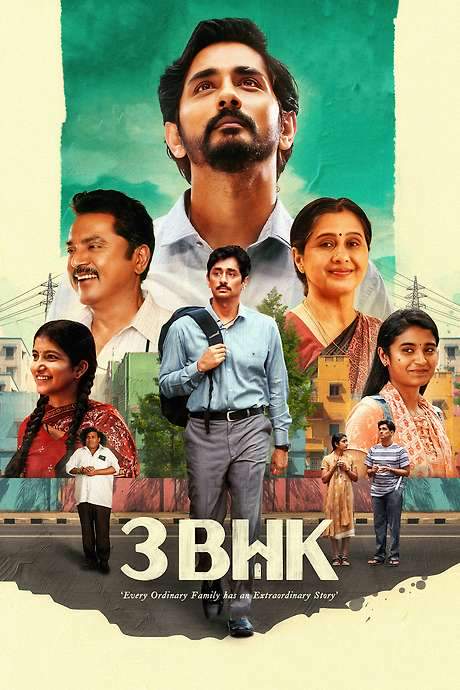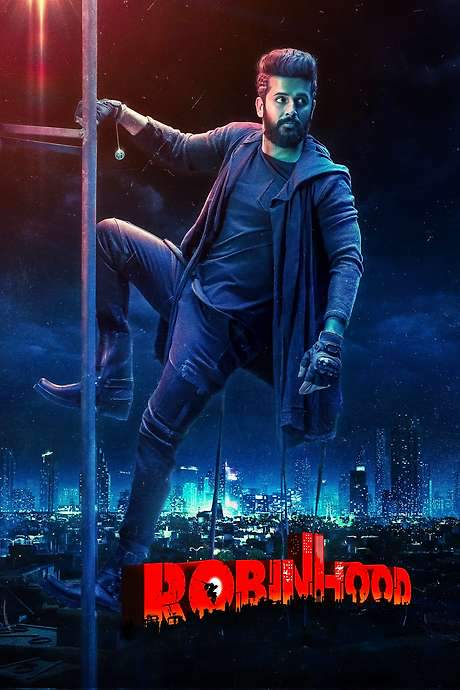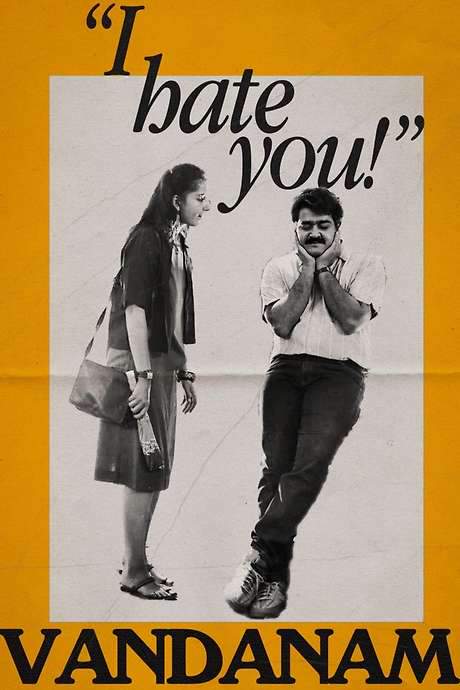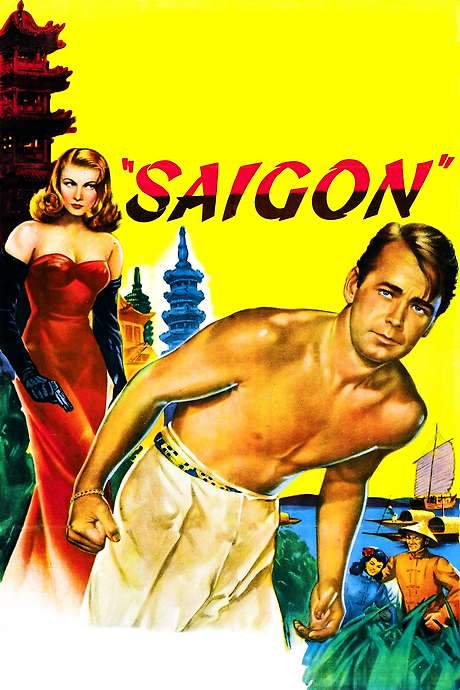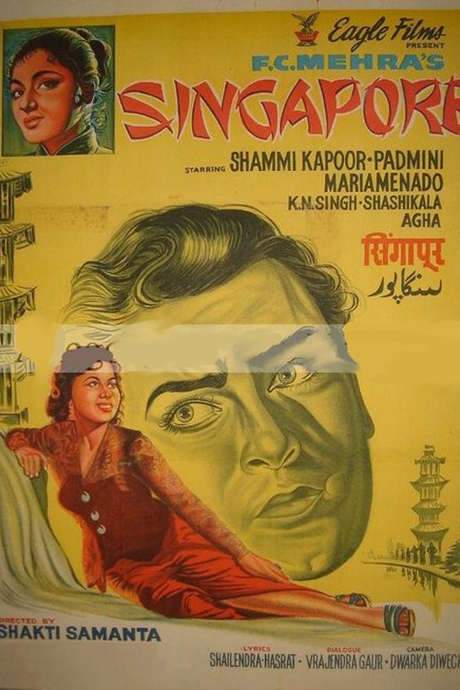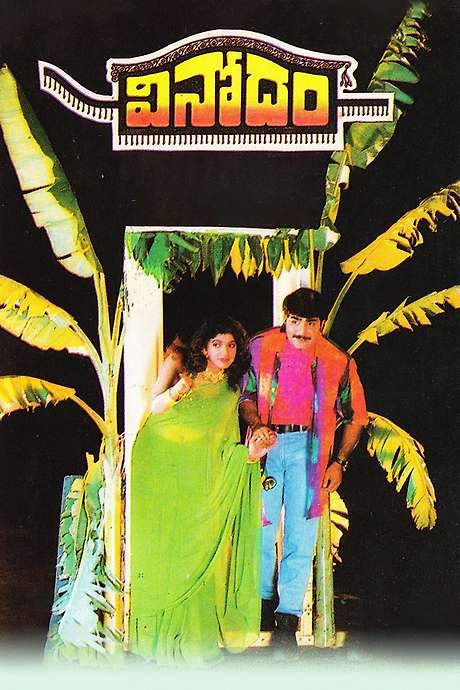
Vietnam Colony
Year: 1992
Runtime: 154 mins
Language: Malayalam
Directors: Siddique, Lal
Krishnamurthy is appointed by a real estate company to vacate Vietnam Colony, a place buzzing with illegal and antisocial elements.
Warning: spoilers below!
Haven’t seen Vietnam Colony yet? This summary contains major spoilers. Bookmark the page, watch the movie, and come back for the full breakdown. If you're ready, scroll on and relive the story!
Vietnam Colony (1992) – Full Plot Summary & Ending Explained
Read the complete plot breakdown of Vietnam Colony (1992), including all key story events, major twists, and the ending explained in detail. Discover what really happened—and what it all means.
G. Krishnamoorthy, Mohanlal, hails from a respected Tamil Brahmin family and lands a job as a construction supervisor with the Calcutta Construction Company. He is genuinely excited at the prospect, envisioning a steady, respectable role, until his new colleague, K. K. Joseph, Soubin Shahir, pulls him aside with a blunt warning: their assignment is to vacate the Vietnam Colony, a cramped settlement of day laborers, so the land can be cleared for a new construction project. Joseph adds a hard truth: the company has been trying to move the residents for years, but three criminal leaders — Paravoor Ravuthar, Irumbu John, and Kannappa Srank — have thwarted every attempt. He also taunts Krishnamoorthy’s Brahmin gentility, implying that he may be too fragile to stand up to the danger.
Despite his initial resolve to walk away, Krishnamoorthy’s situation at home tightens the noose. That evening, he tells his mother he will refuse the offer, but the weight of familial pressure and debt to relatives who lent his late father money leaves him with little choice but to accept. The choice is far from easy, and the moral stakes weigh heavily on him as he steps toward the colony.
Back at the office, Krishnamoorthy and Joseph hatch a plan to stay inside the colony by masquerading as harmless writers who want to document life there, a ruse designed to undermine the residents from within. They also arrange to stay with Pattalam Madhavi Amma, a formidable matriarch figure who keeps a close eye on the neighborhood. Pattalam Madhavi Amma, KPAC Lalitha, embodies a blend of warmth and streetwise pragmatism that makes the two men’ s mission more complicated and more human.
WhenKrishnamoorthy and Joseph arrive at the colony, they meet Unnimol, a resident who instantly takes a liking to Krishnamoorthy. Unnimol, Kanaka, is lively and perceptive, and her instinctive hospitality helps Krishnamoorthy start to see the colony as more than a pawn in a developer’s game. The community itself is wary at first, but Krishnamoorthy’s growing empathy and willingness to listen help him win their trust. He learns about Moosa Settu, the colony’s proprietor, and Moosa’s mother, Suhra Bai, a mentally ill woman who clings to the land she inherited from her father. Suhra Bai’s story reveals a harsh truth: Moosa Settu has exploited the residents, taking money and using fear to maintain control, while the colony endures monthly extortion payments demanded by a network of criminals.
As Krishnamoorthy earns confidence, he begins to upgrade the colony’s infrastructure, using his position to make small, practical improvements that raise the residents’ spirits and their sense of dignity. He also wins the sympathy and trust of the gangsters—an uneasy balance that underscores the moral gray area at the heart of his mission. The plan gains momentum when Krishnamoorthy gets approval from his bosses to offer the residents a substantial package: a large tract of land with houses where they can relocate, framed as a fair settlement terms negotiation in front of the colony to persuade them to accept. He delivers a rousing speech that emphasizes unity and collective strength, arguing that a united community can demand what it deserves.
Yet the moral center of the story shifts when tragedy strikes. Suhra Bai becomes obstinate, insisting she cannot leave the land she inherited. In a moment of rage, Ravuthar assaults her, and she dies the next day. The colony reels, and Swami—Krishnamoorthy’s adopted moniker among the locals—goes in search of Moosa Settu to perform his mother’s last rites. The twist arrives when Krishnamoorthy discovers Advocate Thomas — Krishnamoorthy’s company ally in disguise — living in Moosa Settu’s bungalow. In an even more startling reversal, the now-homeless Moosa Settu surfaces at the local madrasa, where he performs Suhra Bai’s last rites, a scene that exposes the depths of greed and complicity within the project.
The revelation hits Krishnamoorthy hard: the company is actively working to demolish the land, and his carefully constructed plan risks collapsing. The colony, sensing that Swami may be aligned with the developers, confronts him, and he is forced to confront the truth of his own complicity. Swami then confesses and commits to fighting for the colony’s justice, choosing to stand with those he had set out to betray. Unni, the daughter beloved of Madhavi Amma’s circle, grows to admire Krishnamoorthy’s bravery and gradually falls in love with him, adding a personal stakes dynamic to the political struggle.
The tension intensifies as the company’s goons, emboldened by the promise of money, align with the developers and launch a violent assault on Krishnamoorthy. The colony unites to defend their home, beating back the attackers and even subduing Advocate Thomas, whose duplicity is laid bare. In the climactic upsurge of solidarity, Krishnamoorthy earns the community’s praise for his courage and leadership. The film closes on a note of quiet triumph: Krishnamoorthy leaves the colony to return home, while Unnimol, drawn to him by love and loyalty, quietly slips away with him, signaling a hopeful, if ambiguous, future beyond the fight for the colony’s rights.
In this story of displacement, power, and moral ambiguity, the characters navigate a landscape where ambition and compassion collide. Krishnamoorthy’s journey—from a hesitant recruit to a determined advocate for the colony—offers a portrait of resilience under pressure, the costs of taking a stand, and the possibility that a single determined person can spark a broader shift toward justice, even in the face of entrenched interests.
Last Updated: October 09, 2025 at 14:13
Explore Movie Threads
Discover curated groups of movies connected by mood, themes, and story style. Browse collections built around emotion, atmosphere, and narrative focus to easily find films that match what you feel like watching right now.
Urban Advocate Dramas like Vietnam Colony
An outsider is transformed by a community's fight for its home.If you liked Vietnam Colony, explore more movies about urban communities fighting for survival. These stories follow protagonists who experience a moral transformation, moving from indifference or opposition to leading a hopeful, community-driven fight against injustice.
Narrative Summary
These narratives typically begin with a protagonist tasked with a goal that conflicts with the community's well-being. Through exposure to the residents' lives and struggles, they undergo a crisis of conscience, choosing to align with the community. The plot culminates in a collective confrontation that tests their newfound solidarity.
Why These Movies?
Movies in this thread share a focus on class struggle, urban displacement, and the power of community. They blend tense, gritty scenes with an ultimately hopeful and uplifting tone, creating a satisfying arc of personal redemption through collective action.
Movies about community solidarity like Vietnam Colony
Stories where a marginalized group bands together against injustice.Find movies similar to Vietnam Colony that center on community solidarity. These hopeful dramas showcase groups facing social injustice who band together, creating a powerful sense of found family and achieving an uplifting victory against overwhelming odds.
Narrative Summary
The plot revolves around a external threat that forces a diverse group of individuals to unite. Their initial differences are overcome as they organize and resist, often facing setbacks and violence. The emotional journey emphasizes building trust and solidarity, leading to a climax where their collective strength prevails.
Why These Movies?
This thread groups movies that share a specific emotional mix: the tension and grit of a serious conflict are balanced by a fundamentally hopeful and uplifting outcome driven by community. The pacing is steady, building empathy for the group before the final, satisfying confrontation.
Unlock the Full Story of Vietnam Colony
Don't stop at just watching — explore Vietnam Colony in full detail. From the complete plot summary and scene-by-scene timeline to character breakdowns, thematic analysis, and a deep dive into the ending — every page helps you truly understand what Vietnam Colony is all about. Plus, discover what's next after the movie.
Vietnam Colony Timeline
Track the full timeline of Vietnam Colony with every major event arranged chronologically. Perfect for decoding non-linear storytelling, flashbacks, or parallel narratives with a clear scene-by-scene breakdown.

Characters, Settings & Themes in Vietnam Colony
Discover the characters, locations, and core themes that shape Vietnam Colony. Get insights into symbolic elements, setting significance, and deeper narrative meaning — ideal for thematic analysis and movie breakdowns.

Vietnam Colony Spoiler-Free Summary
Get a quick, spoiler-free overview of Vietnam Colony that covers the main plot points and key details without revealing any major twists or spoilers. Perfect for those who want to know what to expect before diving in.

More About Vietnam Colony
Visit What's After the Movie to explore more about Vietnam Colony: box office results, cast and crew info, production details, post-credit scenes, and external links — all in one place for movie fans and researchers.

Similar Movies to Vietnam Colony
Discover movies like Vietnam Colony that share similar genres, themes, and storytelling elements. Whether you’re drawn to the atmosphere, character arcs, or plot structure, these curated recommendations will help you explore more films you’ll love.
Explore More About Movie Vietnam Colony
Vietnam Colony (1992) Scene-by-Scene Movie Timeline
Vietnam Colony (1992) Movie Characters, Themes & Settings
Vietnam Colony (1992) Spoiler-Free Summary & Key Flow
Movies Like Vietnam Colony – Similar Titles You’ll Enjoy
Kakkakuyil (2001) Complete Plot Breakdown
Vietnam Texas (1990) Full Summary & Key Details
Vinodayathra (2007) Complete Plot Breakdown
Vietnam (1000) Spoiler-Packed Plot Recap
Nadodikkattu (1987) Detailed Story Recap
Vandanam (1989) Full Summary & Key Details
Vishnu (1994) Full Movie Breakdown
Saigon (1947) Detailed Story Recap
In the Country (1967) Film Overview & Timeline
Varnapakittu (1997) Plot Summary & Ending Explained
Krishna (1996) Spoiler-Packed Plot Recap
Kenner (1968) Story Summary & Characters
Singapore (1960) Full Summary & Key Details
Vinodham (1996) Movie Recap & Themes
Vietnam Veedu (1970) Full Movie Breakdown













